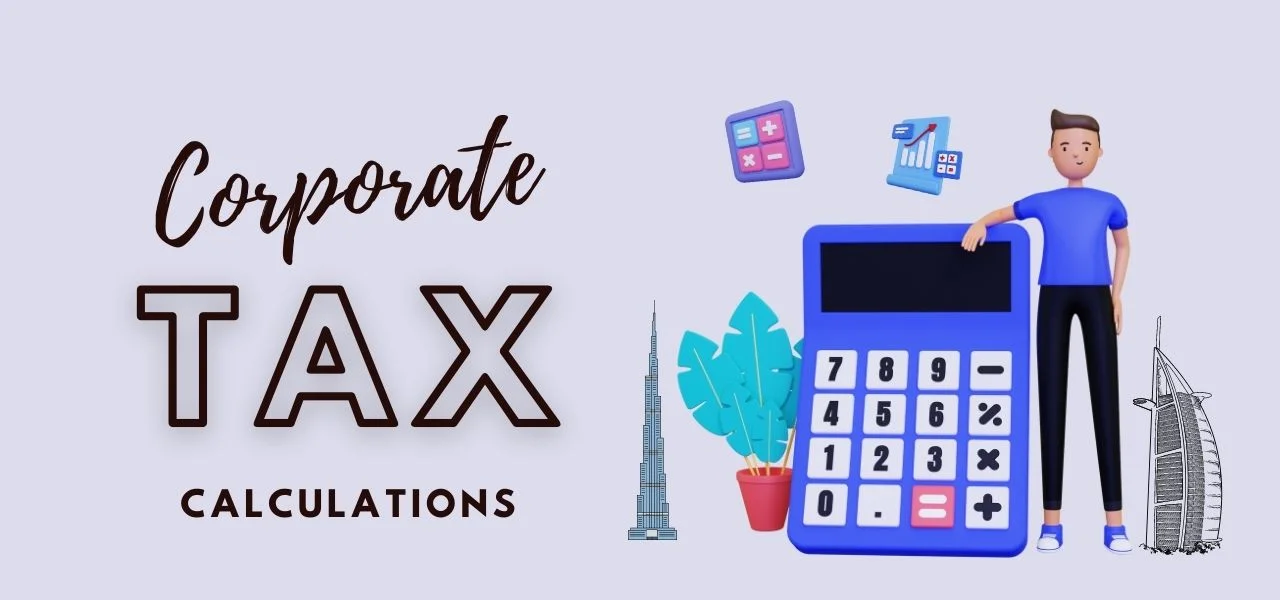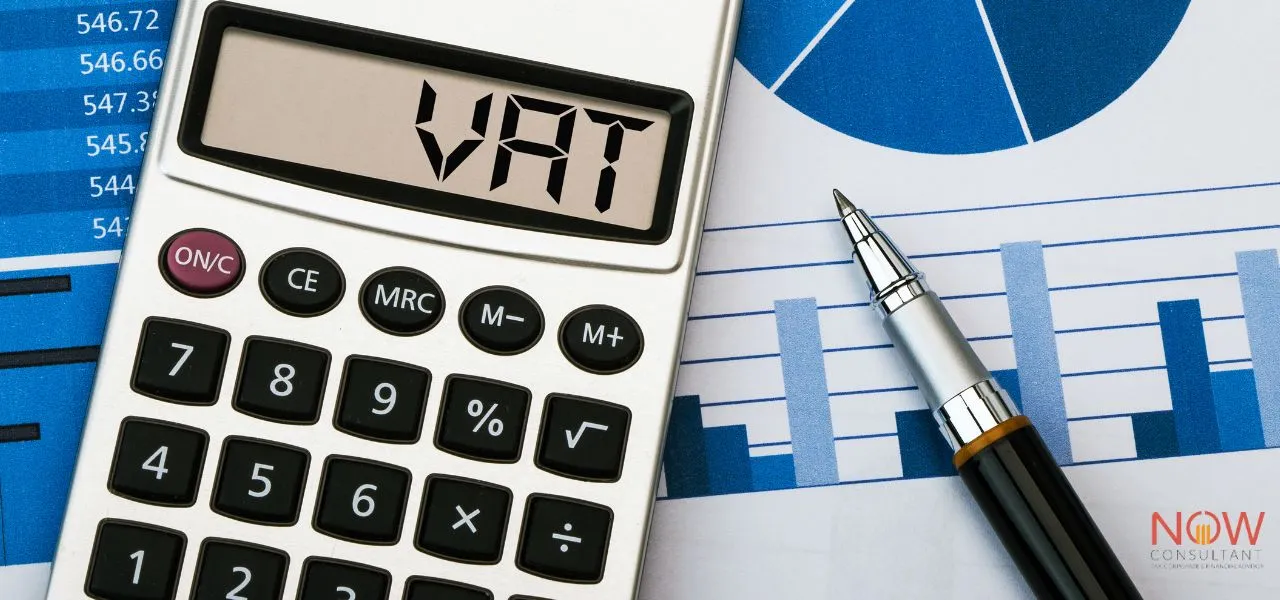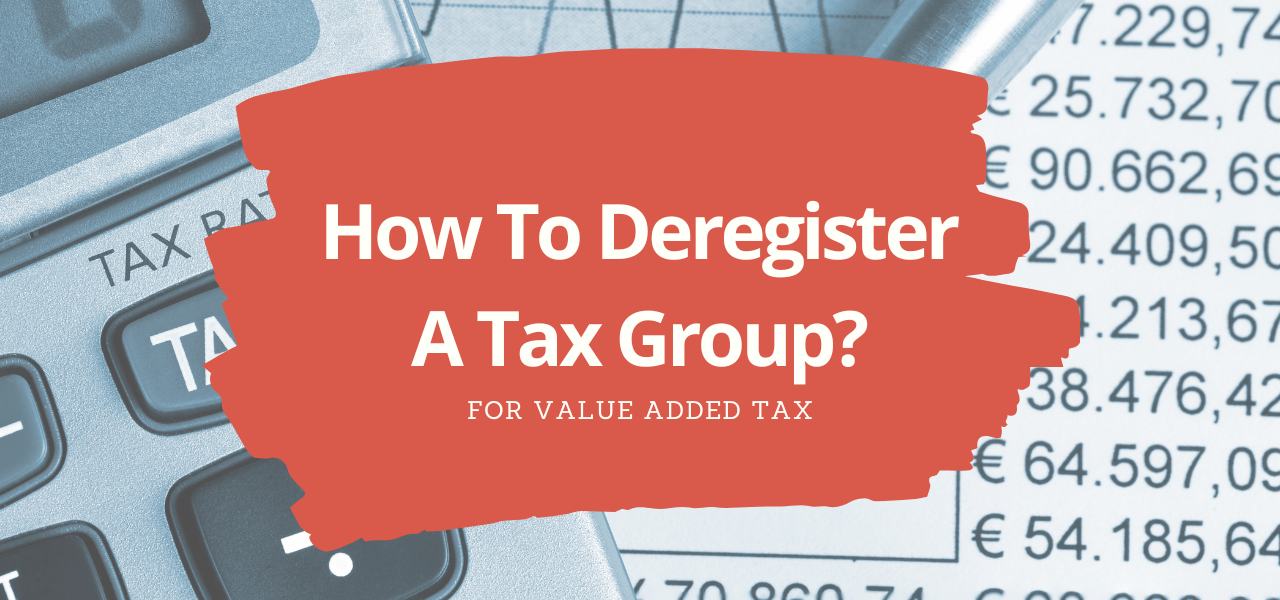If you’re feeling overwhelmed by the complexities of calculating corporate tax in UAE and don’t know how to calculate corporate tax in UAE, don’t worry as we provide a comprehensive resource to demystify the Corporate Tax Calculations process.
The UAE Ministry of Finance announced in January 2022 that Corporate Tax in UAE will be applied at a standard rate of 9%. The tax will be segmented based on specific criteria, and different rates will apply accordingly:
- 0% for taxable income up to AED 375,000.
- 9% for taxable income above AED 375,000.
- A different tax rate (not yet specified) for large multinationals that meet specific criteria.
If you’re seeking professional assistance with corporate tax registration, check out our Corporate Tax Registration Service. Our team of experts can guide you through the process and ensure your compliance with the UAE tax regulations.
Corporate Tax Calculator In Dubai:
How is Corporate Tax Calculated in the UAE?
Corporate tax in the UAE is calculated at 9% of the net profit shown in the company’s financial statements. This calculation considers all applicable deductions and excludes exempted income. Any foreign taxes the company pays are also allowed for reduction from the profit shown in the financial statement.
The net profit derived after all deductions determine the taxable income. The 9% corporate tax rate is applied only if the taxable income exceeds AED 375,000. Here is an example to illustrate the corporate tax calculation process.
How To Calculate Corporate Tax In UAE – Example Calculation
XYZ, a trader based in Abu Dhabi, UAE, declared its annual sale of AED 500,000 for the current fiscal year and they are eligible for deductions of AED 25,000 for different expenses.
| Sale: | AED 500,000 |
| All Deductions: | AED 25,000 |
| Net Income= | Sale- All Deductions |
| AED 5000,000 – AED 25,000 | |
| AED 475,000 | |
| Percentage of Exempt Amount= | 79% |
| Exempt Amount: | 375,000 |
| Taxable Income= | Net Income – Exempt Amount |
| AED 475,000 – AED 375,000 | |
| AED 100,000 | |
| Corporate Tax on Taxable Income= | Taxable income x 9% |
| AED 100,000 x 9% | |
| Corporate Tax Payable: | AED 9,000 |
In this example, the net profit is reduced by deductions allowed by corporate rules, and the exempt amount of AED 375,000 is subtracted to arrive at the taxable income. Consequently, the corporate tax liability for XYZ is AED 9,000 (9% of AED 100,000).
Now, when it comes to corporate tax calculations, businesses often face complexities and challenges in determining their tax liabilities. However, the UAE government has taken significant steps to simplify the process and provide relief for small businesses.
Exemptions:
Certain sectors and activities may be eligible for tax exemptions or reduced tax rates. These exemptions and incentives promote investment and economic growth in the UAE. Contact the relevant authorities or a tax consultant to explore potential exemptions for your business.
Taxable Income Components for Corporate Taxation in the UAE:
Determining the taxable income components is crucial in calculating corporate tax in the UAE. Taxable income generally includes profits, gains, and other forms of income a business generates.
However, several factors can impact the calculation of taxable income, such as deductible expenses, adjustments, and allowances. Understanding these components is essential to ensure accurate corporate tax calculations.
Allowable Deductions & Adjustments:
Businesses can benefit from various allowable deductions and adjustments when calculating corporate tax in the UAE. These deductions and adjustments help reduce the taxable income, resulting in a lower tax liability.
Learn how to save corporate tax effectively for your business’s financial success.
Businesses can maximize their tax benefits by utilizing common deductible expenses such as employee salaries and benefits, rent, utilities, business-related travel, and advertising costs. Complying with UAE tax laws while using these deductions and adjustments is important.
FAQs:
What Types of Expenses Are Deductible for Corporate Tax Purposes in the UAE?
In the UAE, deductible expenses for corporate tax purposes include employee expenses, rent and utilities, travel expenses, advertising and marketing expenses, and insurance premiums.
Will FreeZone Companies Pay Corporate Tax?
The decision is still awaited regarding corporate tax on free zone companies, from the available legislation as per Article 3 of Federal decree law No 47 of 2022 they segregate qualifying and non-qualifying income of free zone entities. But the law does not explain this income yet.
Are There Any Recent Updates or Changes in The UAE Corporate Tax Laws That Businesses Should Be Aware of?
Yes, there have been recent updates and changes in the UAE corporate tax laws that businesses should be aware of. It is recommended to stay updated with the latest regulations and consult with the NOW CONSULTANT to ensure compliance.
Conclusion:
In conclusion, corporate tax calculations in the UAE can be complex, but by staying updated on the latest regulations and seeking professional advice, businesses can ensure compliance and optimize their tax liabilities.
Our website provides valuable resources and information to help navigate these calculations, ensuring that businesses can make informed financial decisions and thrive in the UAE’s dynamic corporate landscape.









